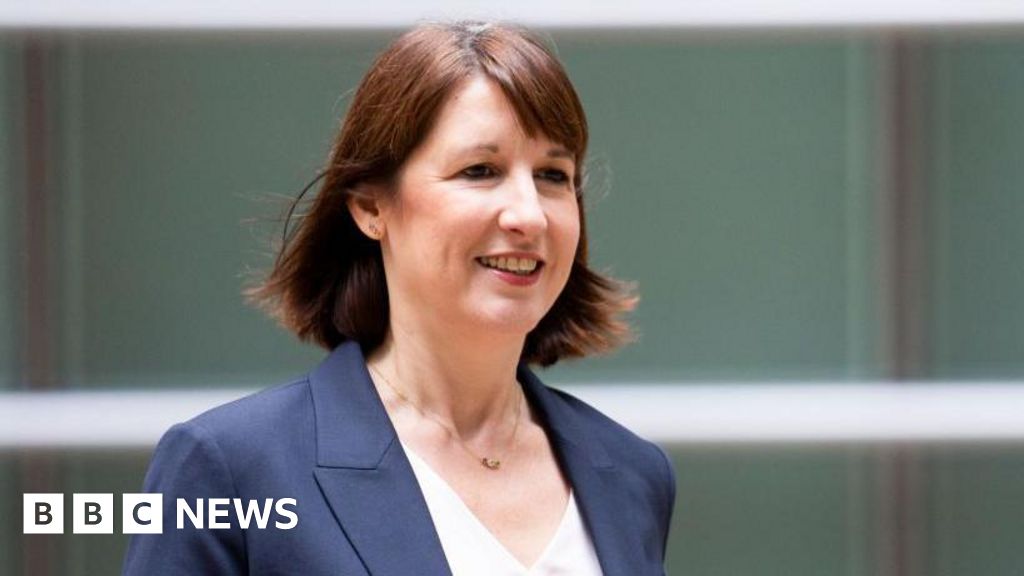Rachel Reeves refuses to rule out capital gains tax rise

Chancellor Rachel Reeves has refused to rule out whether she will increase the rate of capital gains tax in her autumn Budget.
The levy is charged on profits made from the sale of an asset that has increased in value, such as second homes or shares not held in individual savings accounts (ISAs).
During a visit to the US, Ms Reeves said it was important to “strike the right balance” when deciding on tax policies.
The chancellor has previously warned the government “will have to increase taxes” to bolster the public finances, but has not specified which ones yet.
Asked whether she was considering increasing capital gains tax during an interview with Bloomberg in the US, the chancellor replied: “We’ve got a budget on October 30 and we will set out our policy then, but it’s always important when you’re deciding tax policy to strike the right balance.
“Of course you need to bring in the revenue to fund vital public services, but we’ve also got to grow the economy. I won’t do anything that makes it harder to achieve that economic growth and prosperity.”
Ms Reeves is currently in New York where she is courting global investors as part of the government’s strategy to boost economic growth in the UK.
She has ruled out raising VAT (value added tax), income tax or National Insurance at her Budget, which has led to growing speculation over which taxes she will increase, with a hike in capital gains tax among the possible options.
Capital gains tax is payable by individuals, but also self-employed sole traders, partners in business partnerships and company owners, among others, but the rate paid depends on the income of an individual and the type of asset being sold.
Critics point out that the current rates are substantially lower than income tax rates and tend to benefit wealthier people.
For higher earners, capital gains tax is currently 24% on gains from residential property or 20% on gains from other assets.
Meanwhile, income between £50,271 and £125,140 is taxed at 40%, while the top rate of tax for the highest earners is 45%.
However, business groups have warned increasing the levy could impact entrepreneurs selling a small business and stunt economic growth.
According to the Office for Budget Responsibility, the government’s economic forecaster, the UK is estimated to raise £15.2bn from capital gains tax in 2024-25.
Stuart Adam, economist at the Institute for Fiscal Studies (IFS), told the BBC there were a number of things the government could do when it came to capital gains tax, including raising the headline rates or removing certain reliefs.
He said this made estimating how much the government could generate in extra revenues difficult, not least due to challenges in predicting how people will react to any changes.
Last year, Ms Reeves told the BBC: “I don’t have any plans to increase capital gains tax.”
During the general election campaign, Prime Minister Sir Keir Starmer ruled out raising capital gains tax on the sale of primary residencies.
Labour has repeatedly said it would not raise taxes for “working people”, but the Conservatives argue the opposite.
Ms Reeves has claimed the previous government left a £22bn shortfall in the public finances this year.
The IFS has said some of her claims of hidden spending appear to be correct, but said half of the “hole” is spending on public pay rises – something which the chancellor has made a choice to implement.
Ms Reeves’ three-day charm offensive in the US and Canada comes ahead of the International Investment Summit, due to be hosted by the prime minister on 14 October, which is seen by ministers as a way of demonstrating that the UK “is back on the world stage”.
Asked about a potential US-UK trade deal, and whether that would be more likely to happen under Kamala Harris or Donald Trump, Ms Reeves told Bloomberg: “It’s up to the people of the United States to choose who they want as their president.
“But the UK government – whether that’s Labour or a Conservative government in the UK – has always worked with whoever’s in the White House and whoever is in Congress, and that’ll continue to happen.”
Related
Why investing in women is a vital next step for…
Get Nadine White's Race Report newsletter for a fresh perspective on the week's newsGet our free newsletter from The Independent's Race CorrespondentGet our fre
Business secretary signals major shift on electric car policy to…
In a determined effort to retain Nissan’s manufacturing presence in Britain, Business Secretary Jonathan Reynolds has vowed to implement “substantial c
Joint Statement: Business Secretary and Fujitsu Services Ltd
Business and Trade Secretary Jonathan Reynolds today (Friday 7 March) met chiefs for Fujitsu in Tokyo to begin talks over the cost of redress for victims of th
UK foreign secretary backs multilateral defence funding for Europe
UK foreign secretary David Lammy has said that a new multilateral fund will be needed to secure Europe’s defence as he confirmed that Britain is “open to”













